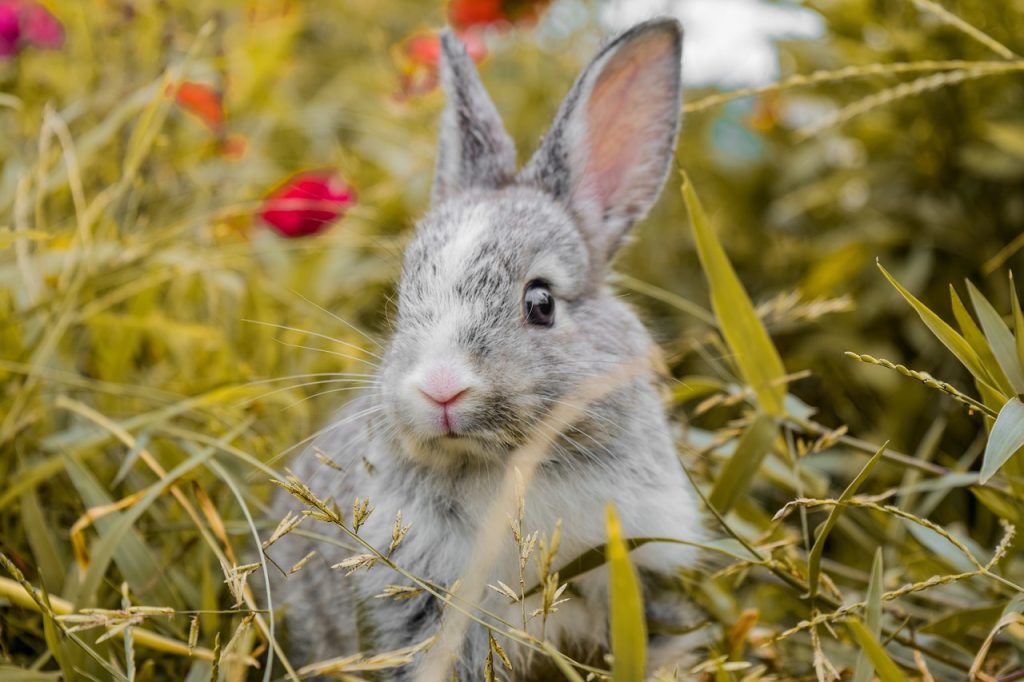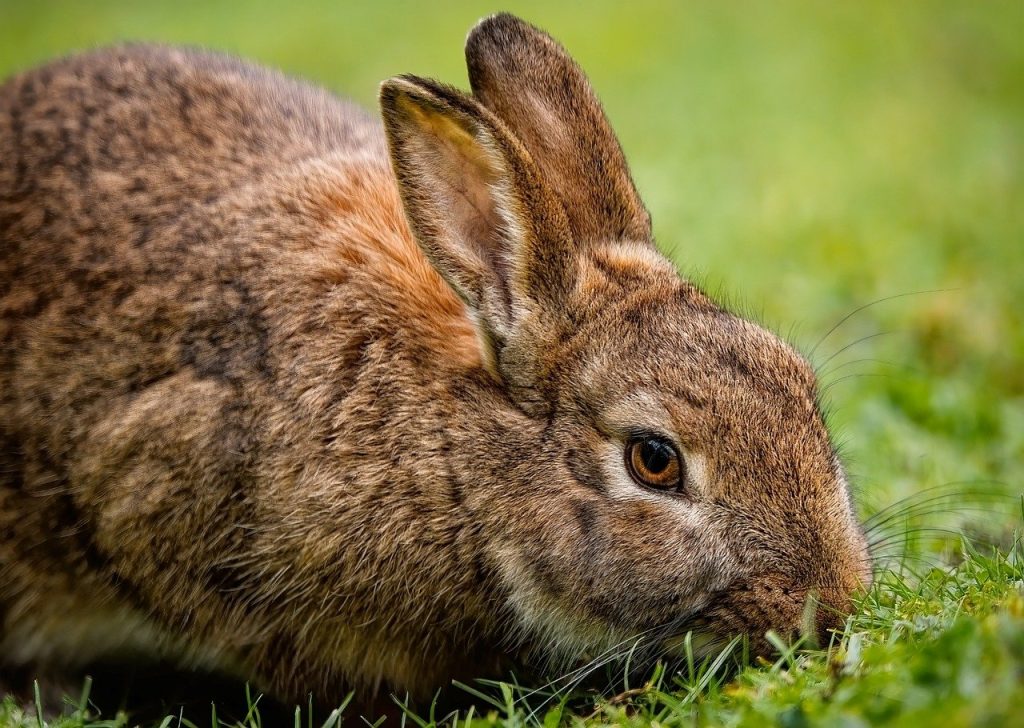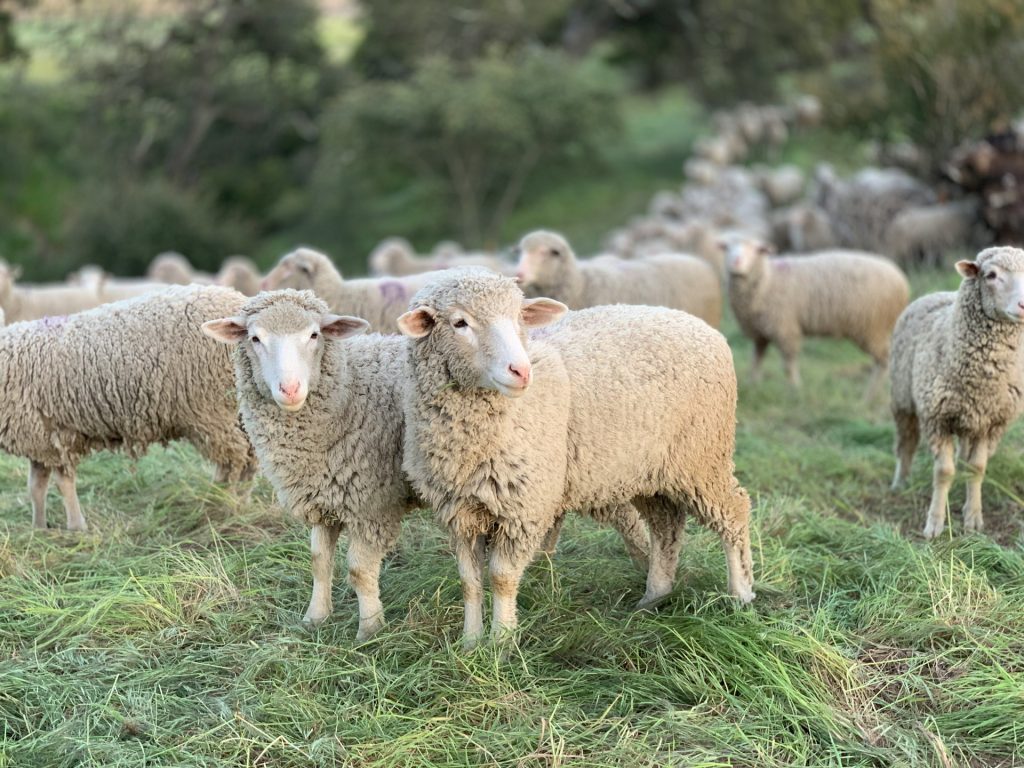Do rabbits lay eggs? Are you wondering if rabbits lay eggs? Well! We did our research and were able to get some comprehensive information on that and even more helpful information about bunnies you would like to know. Keep reading to find out more!
Contents
What is a rabbit?
A rabbit is a small mammal belonging to the Leporidae family. The word “rabbit” comes from Old French “conil,” itself derived from the Latin word “cuniculus,” meaning “little rabbit.”
The adult male is called a buck, and the adult female is a doe; a young rabbit is a kitten or kit. An older term for an adult rabbit is coney, while rabbit once referred only to the young animals.
Another term for a young rabbit is bunny. Like all lagomorphs, rabbits have two long upper incisors that grow throughout life. Rabbits are sexually mature at approximately three months of age; this can vary depending on breed.
In general, they have litters of about four young after a gestation of 31 days. The young are born blind and defenseless; in some species, the mother rabbit provides her young with milk, the only mammal to do so. Rabbits can be differentiated from rodents by their size; their ears, which are large relative to other mammals.

The European rabbit has been introduced into many places around the world. They are raised for food, as a hobby, as pets. Rabbit skins are used for clothing and craft; rabbit meat is called “rabbit.” Rabbit hunting or coursing is a blood sport.
The domestic rabbit has been used as a model organism and was the first mammalian species to be cloned from an adult cell.
Rabbits have been known since antiquity for their remarkable breeding abilities. The young of many mammal species are born in an immature state and develop further after birth, but rabbits are born fully mature, with fur and open eyes. This is due to breeding between the most developed individuals.
The European rabbit (Oryctolagus cuniculus) is an important animal model in biomedical research, particularly in toxicology testing. Rabbit models have been used to test the effects of nerve agents such as sarin and VX gas and were used in studies that led to the discovery of endorphins. The production of monoclonal antibodies for research is also heavily dependent on rabbits.
Do rabbits lay eggs?
I know right now that is the question going on in your mind – do Rabbits lay eggs?
Rabbits do not lay eggs. Rabbits are mammals, and they give birth to live young (kits) through their reproductive organs. Like humans, rabbits have mammary glands that produce milk for their young. The babies nurse on the mother rabbit until they are old enough to find food on their own.
A doe rabbit will usually have two to three litters per year. The number of babies in a litter depends on the breed and age of the mother. A young, first-time mother may only have one or two kits, while an older, more experienced mother may have up to eight or nine kits in a litter. Larger breeds tend to produce larger litters than smaller breeds.
The rabbit gestation period is about 30 days, so it is possible for a doe to have a new litter every month. However, it is also possible for a doe to skip a month or two and not get pregnant again until she has reached sexual maturity.
Is Rabbit Pregnancy Difficult to Detect?
It is fairly easy to tell if a rabbit is pregnant. In fact, there are usually signs that your rabbit is expecting long before you can actually see the babies inside her body.
Some of these signs include:
- A doe will get fatter, but only in the front part of her body.
- She will be restless and want to be left alone.
- Her belly will begin to swell and harden. This is known as “budding.” You may also notice a reddish or pink coloration on her stomach, which is due to the blood vessels being filled with oxygen-rich blood.
- A female rabbit will also have an increased appetite and need more water during pregnancy. She may also begin nesting by either digging a hole in the ground or rearranging the hay in her cage.
- She will be very affectionate toward her owner, and if you stroke her belly, she may even allow you to feel it move.
Rabbits as pets

Rabbits make wonderful pets. Their small size, quiet demeanor, and low-maintenance lifestyle are just a few reasons why rabbits are the perfect companion for many families.
Rabbits are easily litter-trained, and they will spend most of their time lounging around in a comfy rabbit bed.
Rabbits can make great pets for families with small children, as long as the parents understand that the rabbits need extra care and supervision. Because of their small size, it is important to supervise children when they play with the rabbits to ensure that they do not hurt or injure them. Also, because rabbits are prey animals, they may be more likely to be injured or killed by a small child who does not understand that they are fragile.
Rabbits should never be left unsupervised with other pets, especially cats. Cat claws can injure rabbits and some breeds of rabbits are very sensitive to the effects of cat urine, which can kill them.
It is important to get your rabbit spayed or neutered when it is old enough because this will help prevent certain health problems. It will also help keep your rabbit from reproducing, which can be very difficult to do.
How to Spay or Neuter Your Rabbit
If you are considering getting your rabbit spayed or neutered, please make sure that you find a qualified veterinarian who is experienced in working with rabbits. Your veterinarian will have the proper equipment and medications needed for this procedure.
A male rabbit should be castrated at around four months, while a female rabbit should be spayed at around five months. Spaying or neutering can be done at any age, but the earlier it is done, the easier it is on your rabbit. Your veterinarian will determine if your rabbit is healthy enough for surgery.
To prepare for surgery, keep your rabbit quiet and in a stress-free environment for a few days before the procedure. You should also avoid feeding your rabbit 24 hours before surgery to decrease the risk of gastrointestinal problems during recovery.
How many young do rabbits have?
Rabbits have litters of between one and nine kits, though the average is around four to six. Kits (also called kittens or bunnies) are born after a gestation period of 30-31 days, with an average birth weight of about 0.5oz (14g). Once they’re fully grown, their size can vary tremendously. A full-grown adult will weigh between 3lb 8oz and 4lb 11oz (1.6kg – 2kg), depending on the breed.
Rabbits can live for up to 10 years, though the average lifespan is around five years. They are prey animals, and their main predators are cats, dogs, and foxes. There are a number of other threats, too, including mink, ferrets, and stoats. A rabbit’s life expectancy can be affected by these threats as well as environmental factors such as lack of food or water, extreme temperatures, or predators.
Where can you adopt one?
Rabbits are a popular breed of pet. As more people have become aware of the benefits of having a companion animal, the popularity of rabbits has been growing as well. Many shelters and rescue groups now focus on rescuing rabbits, so that they can be adopted into good homes. Rabbits are social animals and do best in pairs or groups when living indoors with humans. If you want to add a rabbit to your family, consider adopting one from your local shelter instead of buying from a breeder.
Benefits of Adopting a Rabbit from a Shelter or Rescue Group
Adopting an animal from a shelter is beneficial for both you and the rabbit. There are many reasons why adopting is better than buying, but the main reason is that it helps to control the pet population.
Shelters have limited space, so they are not able to take in every animal that comes through their doors. It is estimated that nearly 6 million animals are euthanized each year in shelters across the United States. That is a staggering number, and it is a big reason why the rabbit population in shelters is on the rise.
Another benefit of adopting an animal from a shelter or rescue group is that you will save money. You may think that buying an animal from a breeder would be cheaper than adopting one, but this isn’t always the case. You may end up paying more for a sickly rabbit with bad habits than you would for an already-spayed or neutered, healthy rabbit from a shelter.
Shelters and rescue groups also often offer training classes for the animals they adopt out. They may even be able to help you with behavioral issues your pet has developed. So if you want to train your new pet, don’t buy one from a breeder; find one at a shelter or rescue group instead.
Conclusion: Do Rabbits Lay Eggs?
Rabbits are mammals, which means they give birth to live young instead of laying eggs like a chicken. This can make breeding rabbits much easier than breeding chickens because you don’t need to incubate the eggs and wait for them to hatch.
Related Questions To ”Do Rabbits Lay Eggs”
How does a rabbit give birth?
Rabbits are mammals, and they give live birth to their young. In the case of a rabbit, the young are called kits, and they are born without fur or open eyes. A doe usually gives birth in an underground nest known as a warren which is lined with soft materials such as grass, twigs, paper, or leaves and covered with loose soil.
Can you touch newborn rabbits?
Rabbits are born without fur, and the youngest of them are called kittens. Kittens are usually born in litters of 4-5 bunnies. The mother rabbit will not allow you to touch her newborn litter until they’re about a week old.

